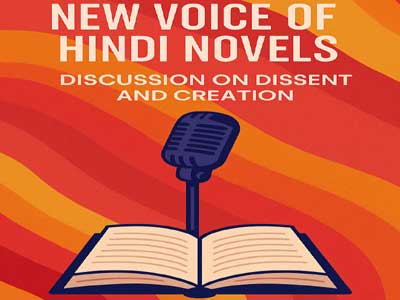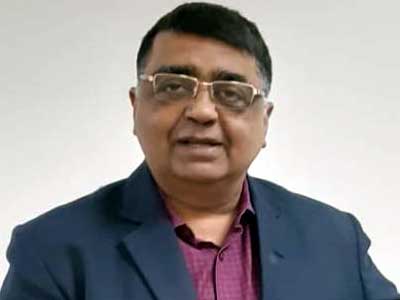The Hindi Department of Aligarh Muslim University organised a two-day national seminar titled ‘Contemporary Hindi Novel: The Voice of Dissent in Time, Society, and Culture’.
Held at the Faculty of Arts Lounge, the event saw participation from renowned scholars and writers across the country. The central discussion revolved around how today’s Hindi novel has become a voice of conscious resistance by probing the soul of society. Seminar convener Prof Shambhu Nath Tiwari said that every creation bears witness to its time. To understand contemporaneity, we cannot ignore history and memory.
Read in Hindi: हिंदी उपन्यास की नई आवाज़, असहमति और सृजन पर हुई चर्चा
Prof Tasneem Suhail, Head of the Department and Seminar Director, stated in her welcome address that the contemporary Hindi novel is building a bridge between social reality and postmodern displacement, where personal suffering and collective dissent walk hand in hand.
Former Vice-Chancellor Prof Mohd Gulrez remarked in his address that the contemporary novel is not rebellion, but an awakening of consciousness. He expressed regret over the lack of migrant writing and magical realism in Hindi and urged creators not to be afraid of new experiments.
Keynote speaker Prof Rohini Agarwal from Maharshi Dayanand University of Rohtak said that time, society, and culture are power structures. Without understanding them, contemporaneity cannot be grasped. She stated, “To reach the rasa of narrative, one must first reach the rasa of intellect.” She also spoke at length about the complex relationships between Indian spiritual philosophy, faith, and the politics of power.
Prof Shraddha Singh from BHU explained in her special address that novel writing and women’s writing in Hindi developed almost simultaneously. She referenced works such as Mannu Bhandari’s ‘Aapka Bunty’, Mridula Garg’s ‘Chittcobra’, Krishna Sobti’s ‘Zindaginama’, and Geetanjali Shree’s ‘Ai Ladki’, noting that today’s women writers are deeply engaging with serious issues like environment, politics, and existence. In the concluding session, Prof TN Satish, Dean, Faculty of Arts, said that literature is not mere entertainment but a medium to reveal societal truths.
Reacting to literary trends in contemporary Hindi literature, public commentator Prof Paras Nath Chaudhary says, “Today’s Hindi novel speaks in multiple voices, having moved beyond Premchand’s realism. Writers like Uday Prakash, Nirmal Verma, Maitreyi Pushpa, Vinod Kumar Shukla, Alka Saraogi, Anamika, Geetanjali Shree, and Yashpal Sharma have infused fresh vitality into Hindi narrative at both linguistic and intellectual levels.”
According to Prof Dr Mandvi of Delhi University, “Geetanjali Shree’s ‘Ret Samadhi’ has proven to be a milestone in gaining international recognition for Hindi narrative. Meanwhile, works like Vinod Kumar Shukla’s ‘Deewar Mein Ek Khidki Rehti Thi’ blend reality and dream wondrously. These creations subtly capture the growing atmosphere of intolerance in society, caste and gender inequalities, and the restlessness of rapidly changing urban life. In today’s novels, personal experience has itself become political truth.”
Yet a shared concern has emerged in recent times within academic corridors, laughter and satire seem to have vanished from Hindi literature. The sharp satire with which Harishankar Parsai, Shrilal Shukla, and KP Saxena once held a mirror to society is rarely seen today with such creative agility.
Literature enthusiast from the South, Mukta Gupta, says, “Today’s writing is serious, but somewhere it has lost the human warmth of smiles and light satire. In this era, magazines like ‘Humour Times’ are keeping this legacy alive. The magazine continues to sustain democratic thought through witty, intellectual satire on political and social issues. Its role is inspirational for the literary world as well.”
AMU’s seminar was not merely an academic discourse but also an exploration of the soul of Hindi literature. Today’s Hindi novel has indeed become a voice of dissent, yet it must grapple with challenges like translation, global recognition, and the lost legacy of humour. The purpose of literature is not only to record reality but also to instil the courage to smile amidst it. As a poet once said, “Only one who can laugh can speak the truth.”












Related Items
Lecture held on recent trends in Contemporary British Prose
Department of Geology at AMU celebrates Foundation Day
Lecture held on Climate Change and Sustainable Society